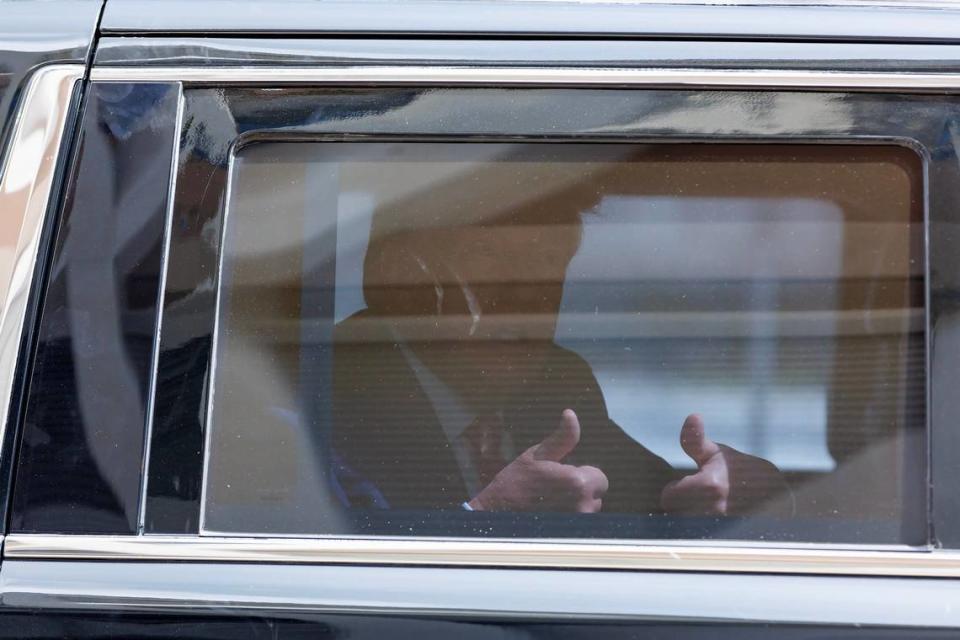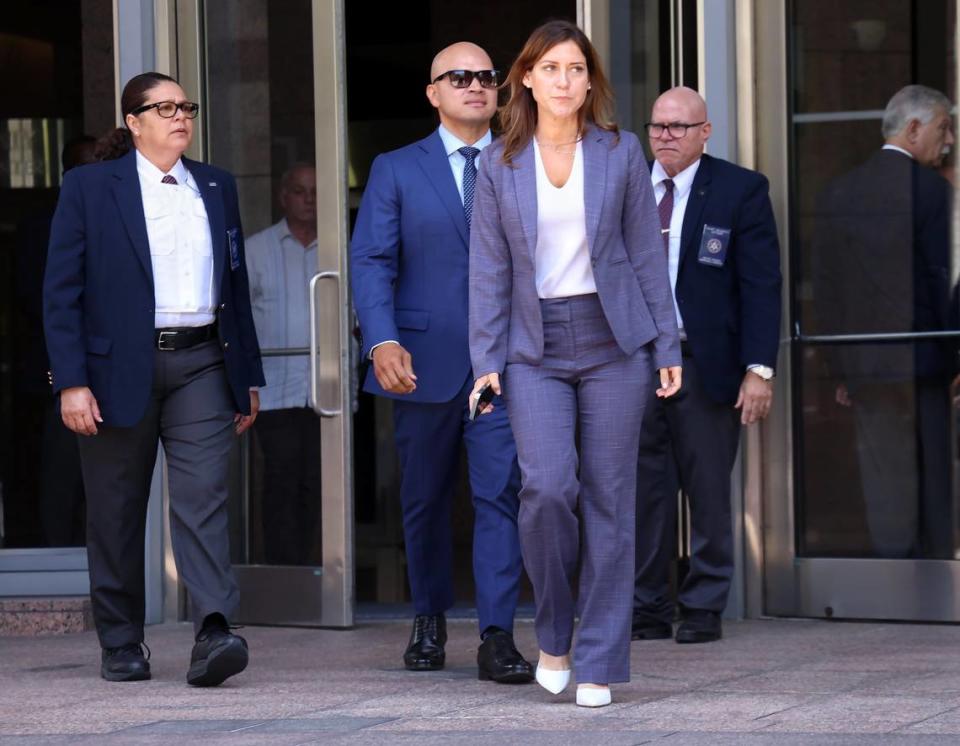Judge Cannon rejects Trump’s biggest bid to throw out classified documents case
- Oops!Something went wrong.Please try again later.
- Oops!Something went wrong.Please try again later.
Former President Donald Trump lost his biggest bet so far to throw out his classified documents case Thursday when U.S. District Judge Aileen Cannon firmly denied his motion, concluding that the Presidential Records Act “does not provide a pre-trial basis to dismiss” the 42-count indictment.
Trump’s lawyers argued at a hearing last month in the Fort Pierce federal courthouse that he designated the documents as his own personal property when he took them from the White House to his Mar-a-Lago estate in Palm Beach after leaving office and therefore he had the authority to keep them.
Her decision — barring a ruling on an appeal before the U.S. Supreme Court in April that Trump has immunity against criminal prosecution — paves the way for his classified documents trial as scheduled on May 20 or later in the year as the presidential election looms between him and Joe Biden in November.
In her three-page order, Cannon rejected the Trump legal team’s reasoning, saying most of the counts in the indictment fall under the Espionage Act, which states that without authorization it is illegal to retain any national defense documents and fail to turn them over to the U.S. government. She noted that the indictment’s 32 espionage charges make no reference to the Presidential Records Act. She also pointed out that the remaining obstruction of justice and other charges are not based on the Presidential Records Act either.
“More generally, the superseding indictment specifies the nature of the accusations against Defendant Trump in a lengthy speaking indictment with embedded excerpts from investigative interviews, photographs, and other content,” Cannon wrote, emphasizing that the charges “track the statutory language” of the Espionage Act.
Previously, after the March 14 hearing in her courtroom, Cannon also rejected another dismissal motion by Trump’s lawyers, who argued that the Espionage Act was vague and should be struck down entirely.
In the classified documents case, Trump’s lawyers argued that he is “immune from prosecution ... because the charges turn on his alleged decision to designate records as personal under the Presidential Records Act and to cause the records to be moved from the White House to Mar-a-Lago.
“As alleged in the superseding indictment, President Trump made this decision while he was still in office,” their motion states. “The alleged decision was an official act, and as such is subject to presidential immunity.”
Justice Department: No right to the documents
Justice Department lawyers on special counsel Jack Smith’s team urged Cannon to reject Trump’s dismissal motion, saying the former president had no legal right to retain the classified records at his Palm Beach estate as he refused to turn them over to federal authorities for storage at the National Archives in Washington.
The criminal case over Trump’s retention of classified documents was brought against the former president last June, and was expanded the following month in an indictment naming two other defendants: Walt Nauta a former White House aide who still works with the ex-president, and Carlos De Oliveira, a property manager of his Mar-a-Lago estate.

Miami grand jury
The indictment, returned by a Miami federal grand jury, alleges Trump brought a few underlings at his Palm Beach estate into a close circle that prosecutors say assisted him in trying to hide boxes of classified documents from authorities and to delete video security footage of Mar-a-Lago’s storage area and nearby hallway linked to the residence.
According to the indictment, Trump spoke with De Oliveira for 24 minutes after the Justice Department informed his legal team on June 22, 2022, of a draft grand jury subpoena for the surveillance footage at Mar-a-Lago. Two days later, the subpoena was officially delivered to Trump’s residence.

On June 25, after changing his travel plans, Nauta flew to the Palm Beach estate. Then, on June 27, Nauta collaborated with De Oliveira to find and destroy the surveillance video, the indictment states.
The indictment does not say whether Trump, Nauta or De Oliveira were successful in deleting any of the video footage. But previous filings in the unprecedented case show that a June 2022 grand jury subpoena uncovered video images that prosecutors with the special counsel’s office say revealed damning evidence.
Search of Mar-a-Lago
The information provided the basis for FBI agents to obtain a court-approved warrant to search Mar-a-Lago on Aug. 8, 2022, when they found and seized more than 100 classified documents in the former president’s office and the club’s storage area.
Cannon was nominated by Trump and joined the federal bench in South Florida at the end of his term in 2020. She drew criticism after she made a controversial call in 2022 to appoint an independent expert, at Trump’s behest, to examine classified government materials seized by FBI agents from his Palm Beach residence before the former president was indicted the following year.
A federal three-judge appellate panel, all Republican-appointees like Cannon, reversed her decision to name a “special master” because she had no authority to do so and effectively killed Trump’s civil case aiming to thwart the impending indictment.

